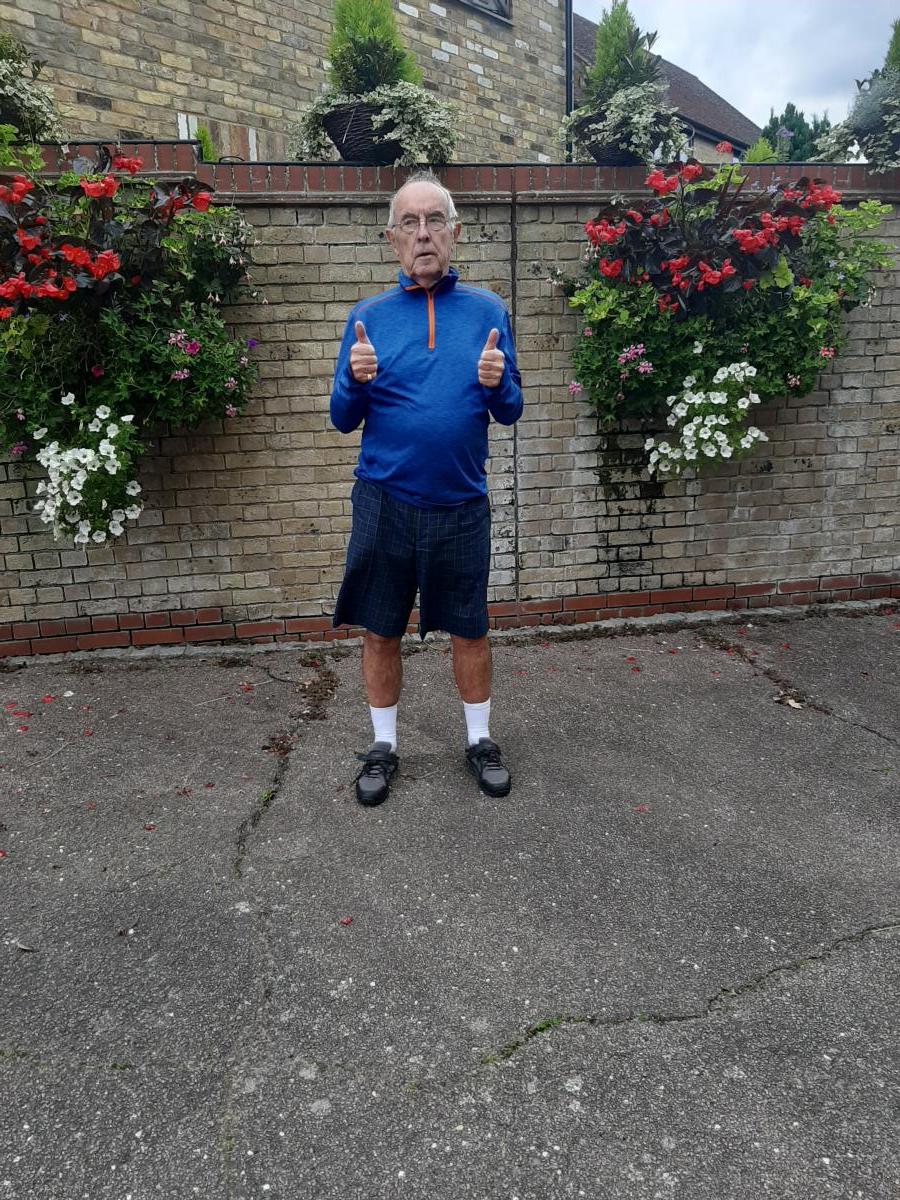Urology Awareness Month: Michael’s story

Michael, a prostate cancer survivor and patient at Barts Health NHS Trust, shares his story for Urology Awarenesss Month.
My story of prostate cancer is basically a story of awareness, early diagnosis and very successful treatment thanks to the team at Barts Health NHS Trust.
I was always aware of the risk of prostate cancer having seen many fellow members at my golf club being diagnosed, some of whom have now sadly passed away. So I started having blood tests to monitor my prostate-specific antigen (PSA) levels as far back as October 2005. PSA is a protein made by cells in the prostate gland, and an increase in its levels in the blood can be an indication of prostate cancer, which is why I had regular blood tests to check and monitor my PSA levels. I had just entered my 60s and having known a number of people who were batteling prostate cancer I was aware of the risks of not reguarly checking and monitoring my PSA levels.
In October 2009, my PSA level rose to 5.4, which worried my doctor. I was sent for tests at King George's Hospital which showed that I had early stage prostate cancer. At this point I was transferred from King George's to the specialist care of St Bartholomew’s Hospital where I had the good fortune to be placed in the care of The Urology Unit under the direction of Professor Frank Chinegwundoh.
While I had been diagnosed with prostate cancer, apart from my PSA levels being increased, I had no other symptoms. But I knew I still had cancer, so I chose to take on the disease before it overtook me.
During my appointments and discussions with my doctors, I had to make a decision about what treatment path to take. Through a combination of conversations with my medical team and some background reading I did myself, we came to the decision that the most suitable treatment option for me was permanent low-dose rate (LDR) brachytherapy.
Permanent low dose-rate (LDR) brachytherapy is a type of radiotherapy where tiny radioactive seeds are put into the prostate. Each radioactive seed (around the size and shape of a grain of rice) releases a steady dose of radiation to the local area. The radiation damages the prostate cells and stops them dividing and growing. The treatment damages the cancer cells so much that they can't recover and die. It also damages healthy cells, but many of these can repair themselves over time.
The seeds release most of their radiation in the first three months after they’re put into the prostate. And after around 8 to 10 months, almost all the radiation has been released and the remaining radiation in the seeds is so small that it doesn’t have an effect on your body.
For me, 63 (233 iodine) seeds were inserted in my prostate. This was over 10 years ago.
I am now 76 years old and haven’t needed any other treatment since. I know this is because my cancer was diagnosed at an early stage, meaning I had more treatment options and a better chance of surviving. Now, I play golf three times a week and carry my bag of clubs rather than use a trolley (electric or otherwise). And I ride my mountain bike two or three times a week over quite rough terrain for about an hour each time.
Since having my treatment, I have kept regular check-up appointments at The Royal London Hospital where it is always a pleasure to see Professor Frank or a member of his Urology team. My most recent appointment was last week by way of telephone and I was delighted to learn that my PSA level is at 2.4.
I am not claiming to be any kind of ‘superhero’ but I do very much want to amplify my story to show that early diagnosis means that a choice of treatment paths and more options is possible and can improve your chances of surviving cancer.
So don’t be shy. Always check for symptoms. Early diagnosis can save your life.
